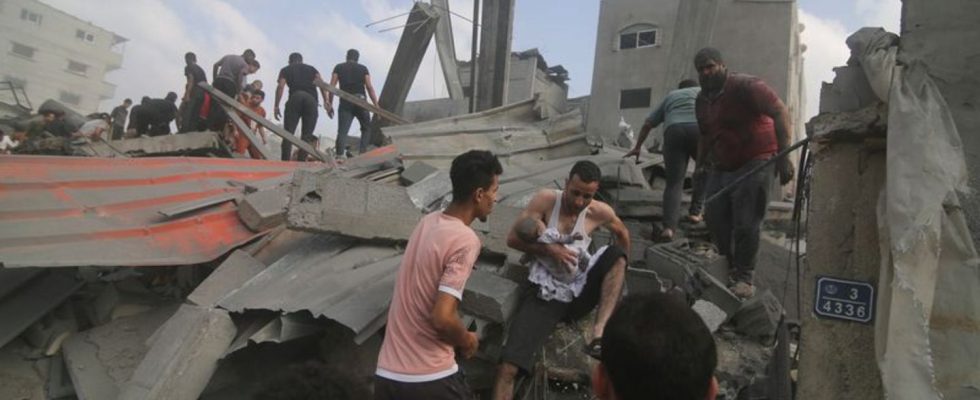War in the Middle East
UN: Chickenpox, scabies and diarrhea in the Gaza Strip
Palestinians search for survivors in buildings destroyed in the bombing of the Gaza Strip. photo
© Hatem Ali/AP/dpa
There is a lack of food – and especially drinking water. The sanitary facilities, if they exist at all, are in a catastrophic condition. Numerous diseases are now rampant in the Gaza Strip.
According to the devastating sanitary conditions in the Gaza Strip, United Nations (UN) cases of chickenpox, scabies and diarrheal diseases. Health organizations working there reported this, the UN Emergency Relief Office (Ocha) said on Sunday. One reason is that people have to draw from unclean sources in their distress due to the lack of drinking water. The UN office did not provide any specific figures.
However, the number of cases will increase if water and sanitation facilities are not quickly supplied with electricity or fuel so that they can resume operations, the UN emergency relief office warned.
Israel has cut off supplies to the Gaza Strip following the devastating October 7 Hamas raids and the launch of its retaliatory rocket attacks. Israel almost completely encloses the Gaza Strip with more than two million Palestinians. The United Nations considers it to be Israeli-occupied territory.
UN: 100 trucks needed daily
According to UN emergency aid coordinator Martin Griffiths, at least 100 trucks of relief supplies are needed every day to supply the suffering civilian population in the Gaza Strip. The United Nations welcomed the first convoy of humanitarian aid to enter the Gaza Strip, which is under constant fire, on Saturday. But they see the 20 trucks as a drop in the ocean. Their cargo only corresponds to around four percent of the average daily imports before the start of the war with Israel. The UN Emergency Relief Office (Ocha) said on Sunday that it was a “fraction” of what was needed after around two weeks of blockade of the coastal enclave.
The United Nations is calling for a humanitarian ceasefire to help more than two million people.

